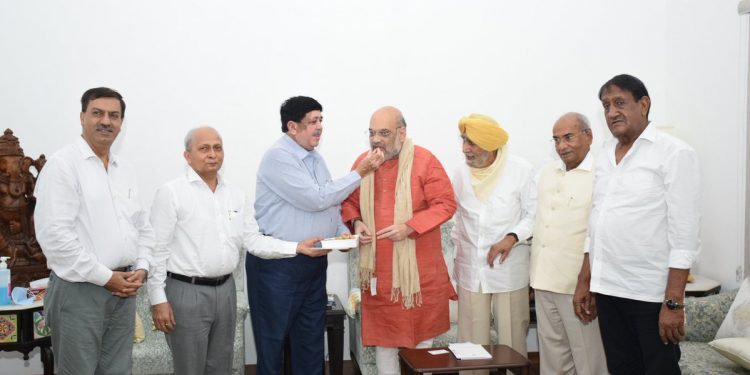The creation of the Ministry of Cooperation shortly before the Narendra Modi government’s biggest reshuffle July 8 is a shrewd and carefully calculated move by the BJP to tinker with the country’s Constitution in order to consolidate its political base at the grassroots, mainly in states such as Maharashtra and Gujarat. The loss of Maharashtra to the Shiv Sena-NCP-Congress combine does not augur well for the BJP’s electoral arithmetic for the next Lok Sabha polls scheduled in 2024. Maharashtra is known as the money making state. Added to this is the fact that there are 48 seats in Maharashtra which is the second largest number of Lok Sabha seats after UP. If UP too slips out of BJP’s grip in the coming Assembly polls, which is within the realm of possibility, the BJP would find it difficult to retain power at the Centre in 2024.
The inept handling of the pandemic and crumbling health facilities coupled with unprecedented economic slowdown have already put a question mark over the efficiency of the Modi government in managing the affairs of the country. It has to be admitted that a government’s abilities can only be measured in times of crises. While the desire of the BJP to tighten its grip on every aspect of society and economy was tolerated by the citizens, its failures also looked larger than life due to the very same attitude.
The nervousness of the leadership is becoming more and more palpable with the approaching Assembly election to the biggest and most electorally sensitive state of UP early 2022. One big example of that fear can be observed in the two-child policy announced by UP Chief Minister Yogi Adityanath to mark World Population Day July 11. This announcement seems like a Make or Break step intended as an experiment in a state where the BJP seems to be faltering. The intense violence that happened during local elections this past week and the desire to get its candidates elected unopposed showed weakness on the part of the BJP. However, the family planning move seems to be an experiment that could go either way. After curtain on the Ram Mandir issue has fallen and violence against Moslems and Dalits continues unabated, the state has not been successful in demonstrating positive achievements. Any achievement could have diverted attention from severe failures such as the innumerable bodies found buried on the banks of rivers in the state.
The reshuffle that sent packing a dozen ministers, including Health Minister Harsh Vardhan and articulate Law, IT and Communications Minister Ravi Shankar Prasad, could be an admission of failure and course correction for the government. If removal of discredited ministers and infusion of fresh blood is one tactic to win over the people’s confidence, the creation of the Cooperation Ministry is an attempt to spread the party’s influence to the grassroots. The selection of Union Home Minister Amit Shah as the in-charge of the new ministry shows the seriousness the BJP top leadership attaches to the exercise.
The controversy that surrounds the new move is the constitutional propriety and validity of the Cooperation Ministry itself as the subject of Cooperation and Cooperative Societies is a State subject in the Constitution’s Seventh Schedule. The Opposition’s charge that it is yet another assault on federalism is not wide off the mark. The real intent, apart from the political calculations, is also suspect, given the fact that cooperative banks across the country control huge money. The combined balance sheet of all state cooperative banks as of March 31, 2015, stood at `1.98 lakh crore and that of district central cooperative banks stood at `4.06 lakh crore. According to the RBI, their contribution to rural credit increased from 3.1 per cent in 1951 to an impressive 27.3 per cent in 2002.
The formation of the new ministry may open floodgates for loot apart from becoming a political tool for the ruling BJP which has to cover a huge ground to make up for the trust deficit it has suffered due to the raging pandemic and its anti-farmer, anti-people and anti-democratic policies.






































